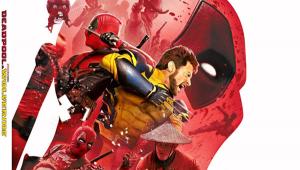Simple DVD Descrambling Code Spreading Quickly, to MPAA's Dismay
Is computer code that allows a user to violate a copyright a protected form of free speech, or is it an "illegal device"? The Motion Picture Association of America (MPAA) has aggressively pursued legal action against internet entrepreneurs, such as 2600, the Hacker Quarterly, that promoted DeCSS, a 57-kilobyte code, invented in 1999 by 15-year-old Norwegian student Jon Lech Johansen, that allows DVDs to be copied onto computers' hard drives and then transmitted over the internet.
Now the organization is trying to suppress "grpff," a descrambling code only 526 characters long, invented by MIT student Keith Winstein and MIT graduate Marc Horowitz. The "Perl" code, compact enough to be printed on a business card, has been passed along by thousands of Internet users. All it lacks is a five-byte title key to do its job on an encrypted DVD.
Winstein and Horowitz created the code for a short college seminar, and scoff at the idea that there is any deep programming knowledge needed. "I think there's some value in demonstrating how simple these things really are and how preposterous it is to try to restrict their distribution," Winstein said. Johansen, the DeCSS orginator, was widely heralded as a "teen genius" when he released his code, but he too dismissed the accolades. "I know at least 10 people who could have done the same thing under the same circumstances," Johansen told reporters earlier this year. He lives in a rural area of Norway about 50 miles from Oslo.
The MPAA believes that, because it allows people to copy DVDs, "grpff" is a violation of the Digital Millenium Copyright Act (DMCA), a broad revision of copyright law, enacted during the Clinton administration, that prohibits the publication or distribution of hardware or software "primarily designed or produced for the purpose of circumventing protection afforded by a technological measure that effectively protects a right of a copyright owner."
The Bush administration agrees with the film industry in its stand against descramblers. "This function is entirely nonexpressive, and thus does not warrant First Amendment protection," administration lawyers wrote in a brief filed last month. Last summer, US District Judge Lewis Kaplan determined that DeCSS violates the DMCA and ordered 2600 Magazine to remove it from its site. Site owner Eric Corley was also ordered to remove any "pointers" to other sites posting the code.
Computer scientist David Touretzky of Carnegie Mellon University included Winstein and Horowitz' short code in an online gallery of DVD descramblers, which the MPAA has demanded he take down. Touretzky sees the controversy entirely as a First Amendment issue. "I would like to know . . . exactly which sort of publications will the MPAA permit in the future, and which sort will result in legal threats . . . , " Touretzky replied to the MPAA's demand.
Winstein is more affable about the legal threats. "Even if whatever is enjoined by that injunction . . . is a violation of the law, I think there's a reasonable case to be made that my seven lines of Perl [code] isn't," he said. "I'm showing the humor in trying to call these seven lines on a piece of paper a device." The Electronic Frontier Foundation is helping Touretzky and Winstein defend themselves against the MPAA.
- Log in or register to post comments























































